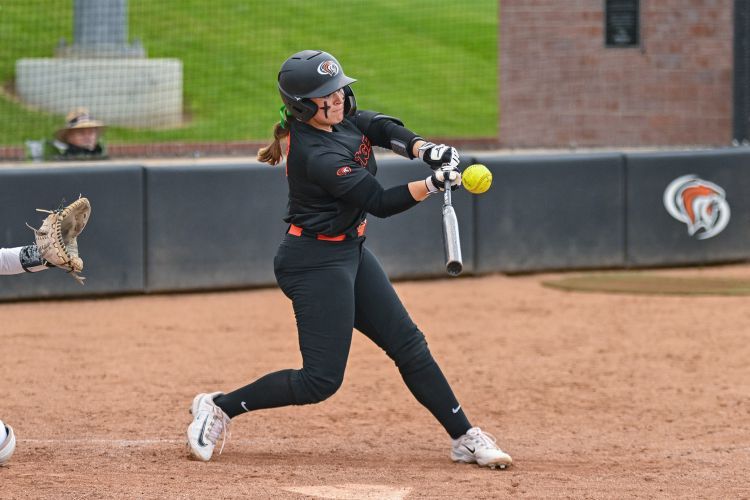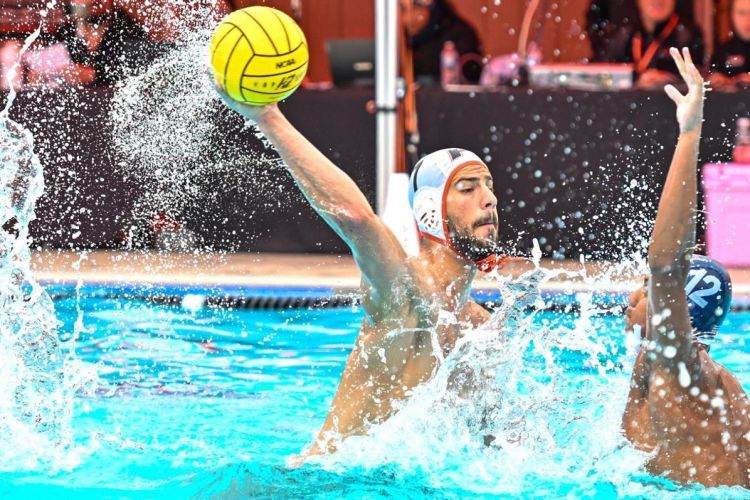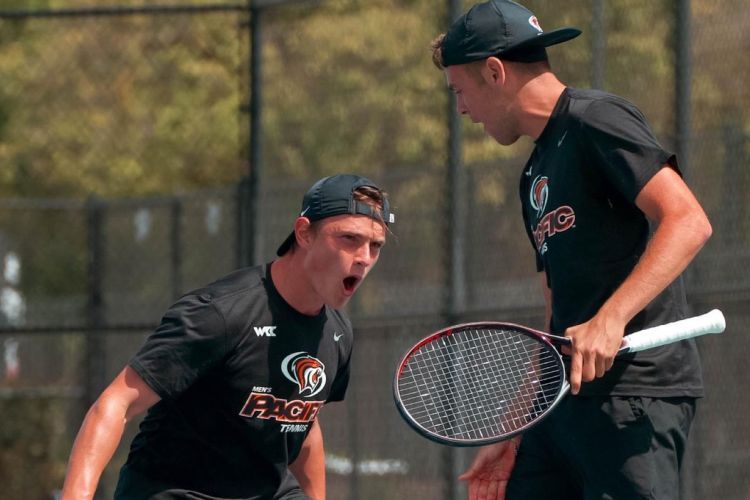Breadcrumb
Pacific athletic training services go above and beyond
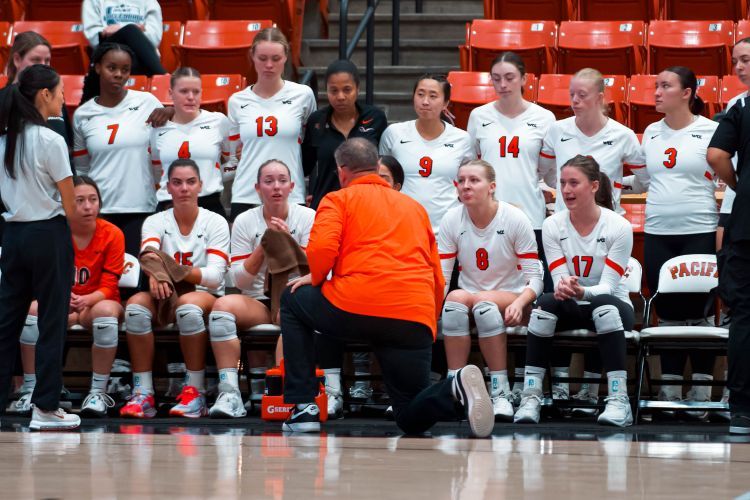
Sonia Bradley (middle of back row) huddles with the women's volleyball team during a game.
The moment sports therapist Sonia Bradley steps onto the University of the Pacific campus in Stockton every day, she puts on a warm smile.
“It is a great, genuine feeling,” Bradley said. “I am happy to be here and see people. That’s where I get my energy. I love to give high-fives. My goal is to treat not just the ‘athlete’ part of the student-athletes, but to treat whole persons.”
Bradley, who joined Pacific in February, shares a common goal with seven other sports medicine and wellness staff leads: provide student-athletes with the highest-quality healthcare in a professional and compassionate manner that encourages lifelong health and wellness.
The team is led by Assistant Director of Athletics for Sports Medicine and Wellness Christopher Pond, who has been on the campus for 34 years since joining the Pacific football program as a trainer in 1990. They work with more than 300 student-athletes each calendar campaign.
“It’s an absolutely wonderful environment,” Pond said. “We have incredible team success across our sports, but it’s those moments where an individual comes back from injury, and you play a part in healing them and watching them thrive again, that are special.”
While attention is directed to student-athletes on the court or in the pool, some credit for their successes is owed to the athletic training staff working behind the scenes with student-athletes throughout the season.
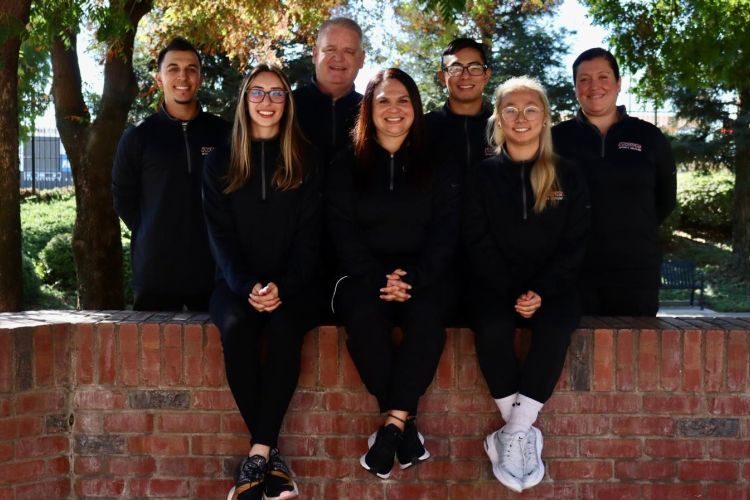
University of the Pacific Sports Medicine staff (Back Row, L-R) Dominic Alejandre, Chris Pond, Patrick Saiki, Sara Vargas. (Front Row, L-R) Kristin Wright, Annette Martinez and Stepanie Nguyen (not pictured: Sonia Bradley)
“The bottom line is to help people achieve their goals and learn skills and lessons to be a better person when they leave,” said Sara Vargas, the senior associate director of sports medicine. She has been with Pacific for 13 years, after earning her undergraduate degree in athletic training at Pacific.
“I’ve seen it give back ten-fold. We’ve had previous student-athletes come back and talk about their experiences. They talk about the challenges and laugh about the times that everyone goes through,” Vargas said.
Each training staff member makes an effort to attend every practice and home game and to travel for each road contest. They provide physical aid, apply treatments and supplement preventative measures for injuries to ensure student-athletes receive the utmost care before and after competition.
“I love when I see my students pushing through,” Bradley said. “Their battles could be big or small in other people’s eyes, but we all try to push with what we have each day. When I give them a way to handle something and they accept the option that it isn’t going to hold them back, that is something I live for.”
Severe injuries don’t occur often at sporting events, but in the event that one does happen, the athletic training staff is well-prepared to respond.
The summer before the 2013-14 women’s basketball season, student-athlete Gena Johnson was in a car accident that changed her life and had to go through several surgeries and rehab stints. The Tigers’ emotional leader was able to return from the bench the following season because of the support of the athletic training staff and doctors.
In honor of her work to get back on the court, the Gena Johnson Comeback Award has been given out the last four years at the annual Tommy Awards, which celebrate the accomplishments of Pacific student-athletes.
“It’s a big deal for us in sports medicine,” Vargas said. “It’s one of the highlights to give that award out at the Tommy Awards in May and is one of the biggest, most impactful moments here at Pacific.”
Progressive expansion and advancements in sports medicine and technologies have led to unparalleled access to student-athlete services at Pacific. Bradley has long advocated for giving athletes strong mental and social-emotional support, no matter the level of sport.
“This is something I fought for and will continue to fight for,” Bradley said. “I believe all student-athletes should have access to our services. You can’t drive a car without the motor. Your brain is what operates your body. My goal is to help them combine their mind and their body to work together.”


